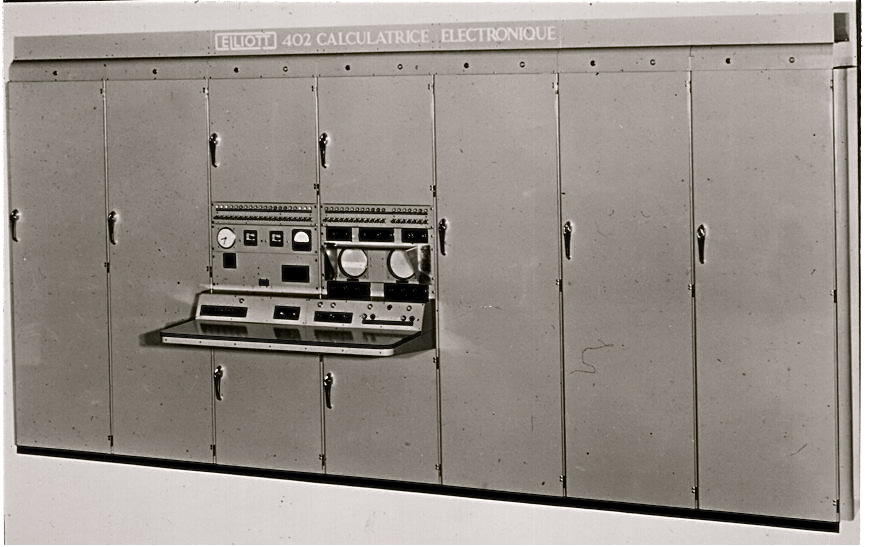| Title: |
The Emergence of Computer Science in France |
| Speakers: |
Pierre Mounier-Kuhn |
| Date: |
Nov 17th 2011 |
| Time: |
14:30
Room open in advance (from 14.00) - meet up with society members.
|
| Location: |
Fellows Library of the Science Museum
Exhibition Road, London,SW7 2DD |
|

The Elliott 402 Calculatrice Electronique at the Institut Blaise Pascal in Paris in 1955
|
About the seminar
How did computing emerge as a science? This seminar will explore the discipline-building process, illustrated by what happened in France.
In the 1950s, French computing pioneers struggled to develop numerical analysis and assert its legitimacy in universities, supported by non-academic allies. Computers were acquired as tools for what was seen as a low-status sub-discipline. Toward 1960, new, non-numerical applications of computers were investigated, such as language translation or information retrieval, while the quest for better programming methods led to R & D on languages, then on operating systems. These various research programs broadened the computing field, as they called for diverse branches of mathematics, particularly algebra and logic. In the same move, computers and information structures became attractive topics for diverse intellectual agenda, from formal linguistics to graph or information theory. Computing began to gain autonomy from "applied mathematics", as a few militants endeavoured to promote it as a new discipline.
The institutionalization of computer science was a controversial effort, in which a decisive step was the establishment of informatics committees at national level in the academic system in the mid-1970s.
The speaker is presenting a paper on this topic at the International Conference on the History and Philosophy of Computing in Ghent in early November, and will also give us some highlights from that conference.
About the speaker
Pierre Mounier-Kuhn is an historian from the CNRS and University Paris-Sorbonne. He devoted his doctoral dissertation to the History of Computing in France from the 1930s to the late 1960s.
He has published some 50 papers on related topics, and a recent book on the history of research and University computing in France. He is currently working on the history of the Plan Calcul and its 'national champion', the CII (Compagnie internationale pour l´informatique), and on the history of Bull.
Click
 to see a podcast of this event.
to see a podcast of this event.
|
|
|
|
